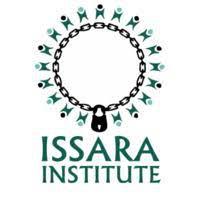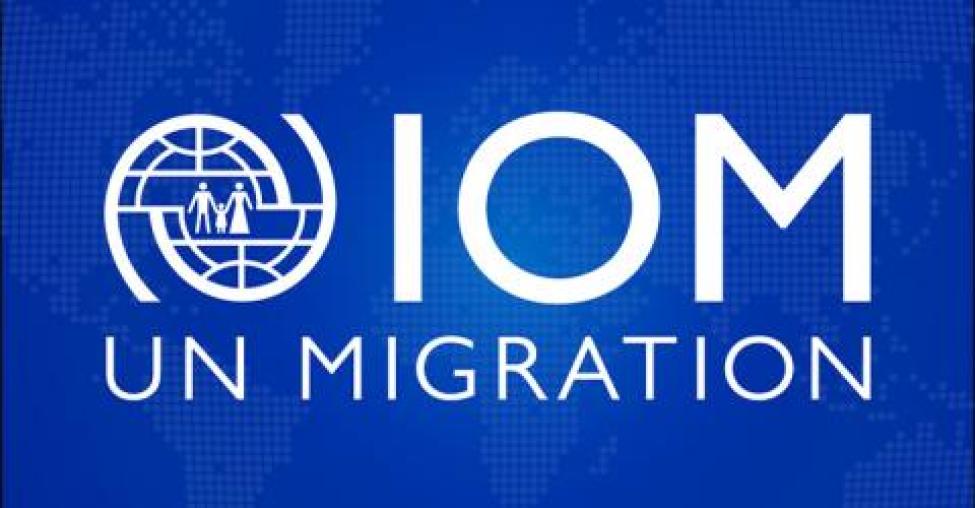About the Accelerator Program
The TAT Accelerator is a collaborative program to advance and scale the work of selected anti-trafficking organizations with promising technology solutions. It connects anti-trafficking organizations with technology companies that provide technical expertise, network access, mentorship, and educational opportunities to accelerate the development, impact, and utilization of technology tools.
What is the TAT Accelerator?
The Tech Against Trafficking Accelerator is a fixed-term, cohort-based program intended to help anti-trafficking organizations deploying promising technological solutions accelerate the development, impact, and utilization of their tools.
The Accelerator connects participating organizations with technology companies that provide technical expertise, network access, mentorship, and educational opportunities, expediting operational processes and technical advancements that facilitate scale and optimize for long-term sustainability.
Past Accelerator Participants




“Data is powerful, but it’s only powerful if you do something useful with it. We’ve been so delighted with the TAT Accelerator program to maximize the potential of our rich data.”
Accelerator Outputs
The following outputs are a result of the collaboration between Tech Against Trafficking members, partners, and the organizations participating in the TAT Accelerator, and they are intended to benefit the broader anti-trafficking field. They have been developed during or following one of TAT’s Accelerator programs in partnership with the participating anti-trafficking organizations.
Intelligence Toolkit
The Intelligence Toolkit is a suite of interactive workflows for creating AI intelligence reports from real-world data sources. The toolkit is designed to help users identify patterns, answers, relationships, and risks within complex datasets, with generative AI models used to create reports on findings of interest.
([OpenAI GPT (https://platform.openai.com/docs/mhttps://platform.openai.com/docs/models/) )
Microsoft Research blog post: Empowering NGOs with generative AI in the fight against human trafficking
GitHub Project: GitHub - microsoft/intelligence-toolkit: Interactive workflows for creating AI intelligence reports from real-world data sources
Privacy-Preserving Mechanisms for Human Trafficking Data
Challenge: Understanding the scale and scope of human trafficking is essential for effective resource allocation, technology application, and policy development. However, one of the critical challenges of the anti-trafficking community is how to share victim data for analysis while protecting the privacy and safety of the individual victims represented in that data.
Solution: Privacy-preserving mechanisms such as synthetic data may offer a solution, and TAT has worked to make this technology more accessible to the anti-trafficking community. The solution uses privacy-aware data sampling to generate a synthetic dataset that represents the statistical properties of the sensitive dataset rather than actual (potentially identifiable) individuals, augments the synthetic data with precomputed aggregates for comparison and official statistical reporting, and creates data interfaces that allow the user to explore both datasets in parallel.
Resources: The following resources can be used by organizations seeking to analyze human trafficking data in a way that preserves the privacy of victims.
Synthetic Data Showcase tool:
- Background: Design of a Privacy-Preserving Data Platform for Collaboration Against Human Trafficking | Microsoft Research
- GitHub Project: microsoft/synthetic-data-showmicase
- Public Utility web app: https://microsoft.github.io/synthetic-data-showcase/
Data Standards for Victim Case Management
Challenge: Recent technological advances have enabled a growing number of organizations worldwide to develop cost-effective victim case management systems and services. However, organizations frequently use different terminology and criteria when assessing and inputting victim information, which makes it difficult to share case data among the anti-trafficking community, conduct meaningful analysis, and understand the scale of the problem.
Solution: To address this challenge, TAT developed a data standard in collaboration with the Counter-Trafficking Data Collaborative (IOM). The Human Trafficking Case Data Standard (HTCDS) establishes common criteria and language that can be used across organizations managing victim case data.
Resources: The following resources can be used by organizations looking to develop victim case management systems and those seeking to share datasets and analyze trends.
Human Trafficking Case Data Standard:
- IOM Announcement: Strengthening the Evidence Base on Trafficking in Persons
- GitHub Project: UNMigration/HTCDS
Causal Tools for Evidence-based Policy
Challenge: To address the root causes of human trafficking, anti-trafficking organizations are advocating for policy changes. However, it is challenging to make strategic policy decisions without evidence that shows the real-world causes driving a phenomenon, and not simply correlations. Similarly, it is hard to evaluate the causal impact of enacted policies in the presence of other real-world factors that may vary over time.
Solution: TAT provided representative problems, data, stakeholders, and questions used to inform the design of “ShowWhy”, a technology that supports discovery and estimation of causal effects in observational data (e.g., the effects of real-world risk factors, interventions, policies, or campaigns). The tool assumes no prior knowledge of coding or causal inference and explicitly targets use by domain experts in policy contexts.
Resources: The following resources can be used by anti-trafficking organizations looking to elevate the level of data-driven evidence used for advocacy efforts.
ShowWhy tool:
- GitHub Project: microsoft/showwhy
- YouTube Video: Introduction to ShowWhy, user interfaces for causal decision-making
- Background: Real-world evidence and the path from data to impact | Microsoft Research
Applying for the Accelerator

Diverse technological solutions are needed to advance innovative strategies to address human trafficking. Through an open and collaborative process, Tech Against Trafficking is looking to engage with tech initiatives and tools across all geographies, languages, sectors, and methods of application.
These solutions can be at any stage of post-concept development by must be tech-centered initiatives or tools. Below are four relevant stages of development:
- Prototype: An initiative or tool in the building and testing phase.
- Pilot: An initiative or tool already deployed and being used in a specific geography and/ or community.
- Mezzanine: An established initiative or tool that has a proven track record and opportunity for greater scale across multiple geographies and/or communities
- Mature: A largely self-sustaining initiative or tool with active operations in several geographies and/or communities, looking to work towards a global impact
Organizations from the Global South or countries / regions with high prevalence rates of human trafficking are strongly encouraged to apply.
2021 ACCELERATOR PROGRAM
The Lantern Project (formerly Seattle Against Slavery) is an organization dedicated to combatting labor and sex trafficking. Their online platform Freedom Signal enables direct service organizations to send targeted, text-based outreach to potential victims of online sex trafficking or sexual exploitation. [Since the close of the Accelerator, the Lantern Project ceased its operations; Freedom Signal is now being managed by Scarlet Hope ]
Unseen UK provides direct support to survivors and uses its frontline expertise to inform anti-trafficking and modern slavery advocacy efforts. Unseen runs the Modern Slavery Helpline and Resource Centre which provides victims, the public, statutory agencies, and businesses with access to information and support on a 24/7 basis.
WorkstreamsSoftware-as-a-Service Business Model: TAT supported both organizations in developing a sustainable business model for their respective technology platforms: Freedom Signal and The Modern Slavery Helpline and Resource Center.
Data Analysis and Productization: TAT supported both organizations in optimizing their data infrastructure and making sense of the human trafficking data they collect. In both cases, data was extracted and analyzed in a cloud environment hosted by Amazon Web Services. Leveraging technologies developed in the previous TAT Accelerator in partnership with the Counter-Trafficking Data Collaborative, the organizations created synthetic datasets from the human trafficking data they collect to share data responsibly and by preserving the privacy of victims. Dynamic graph technology developed by Microsoft Research was applied to these anonymized datasets, allowing the organizations identify patterns and generate insights. In turn, this will help the organizations improve operational efficiency and provide more effective services to reduce human trafficking. A more detailed description of the outputs is provided on our blog post.
Outputs were shared at a virtual Showcase event that brought together technologists, nonprofits, academics, governments, and policymakers from 60 countries to celebrate the close of the Accelerator in May 2022. Watch the recording of the event here.
2019 ACCELERATOR PROGRAM
Participant: The Counter-Trafficking Data Collaborative (CTDC), an initiative of the international Organization for Migration (IOM), is a global human trafficking data hub, publishing harmonized data from counter-trafficking organizations around the world. The goal is to reduce barriers to information-sharing and provide a mechanism for organizations to get data to public and policy audiences. In addition, CTDC helps to build a more complete picture of counter-trafficking trends based on up-to-date, reliable, and standardized data on human trafficking.
Workstreams
- Privacy-preserving Mechanisms: TAT and CTDC sought to develop a solution for analyzing case data while protecting victim privacy. The solution uses machine learning to generate a synthetic dataset which represent statistical properties of the sensitive dataset rather than actual (potentially identifiable) individuals, precomputes them in a way that doesn’t reveal small or precise counts (which may also be identifying), and creates a data interface that allows the user to explore the structure of the data. This solution is now being applied to the full IOM dataset and has been published and made available to the field, setting a new privacy standard for the analysis of human trafficking data.
- Data Standards: TAT and CTDC addressed data standards/consistency across the field by publishing a global data standard related to victim case management. The new Human Trafficking Case Data Standard (HTCDS) was developed and published, along with guidance for its implementation. The TAT team also worked with a new Indian case management service (Pathways) to apply the standard during its development, providing initial support for 10 NGOs in 2020. HTCDS will attract data contributions and partnerships from across the anti-trafficking sector which should enable efficiencies in data analysis, case processes such as referrals and data privacy.
- Stakeholder Engagement: TAT interviewed stakeholders and prospective CTDC data contributors to better understand the value stakeholders derive from the CTDC platform, what additional data, trends, or information stakeholders would find helpful, and what data or information different stakeholders could feed into CTDC’s current dataset and platform. Feedback from the interviews informed specific recommendations on how CTDC can improve the user experience and expand its strategy and offerings to partners. In addition, the workstream refreshed CTDC outreach materials to help improve engagement with dataset owners, show the value of contributing data to CTDC, and optimize the onboarding process for new datasets.
“The CTDC team was delighted to take part in the Accelerator and greatly appreciated the opportunity to get perspective and support from technology sector professionals. Their contribution will have a lasting impact on CTDC and the counter-trafficking community.”
